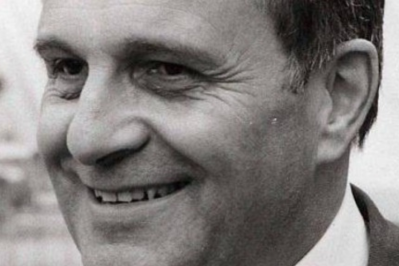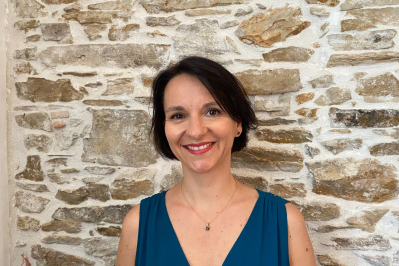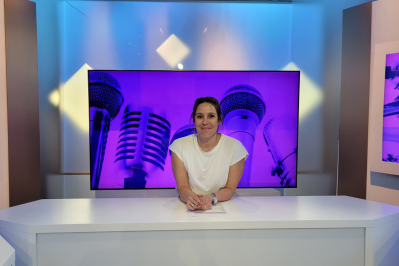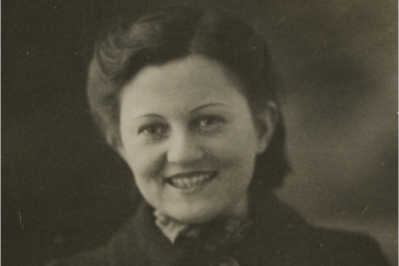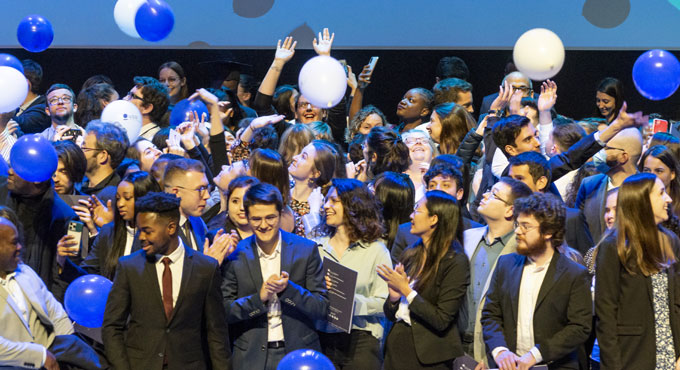News
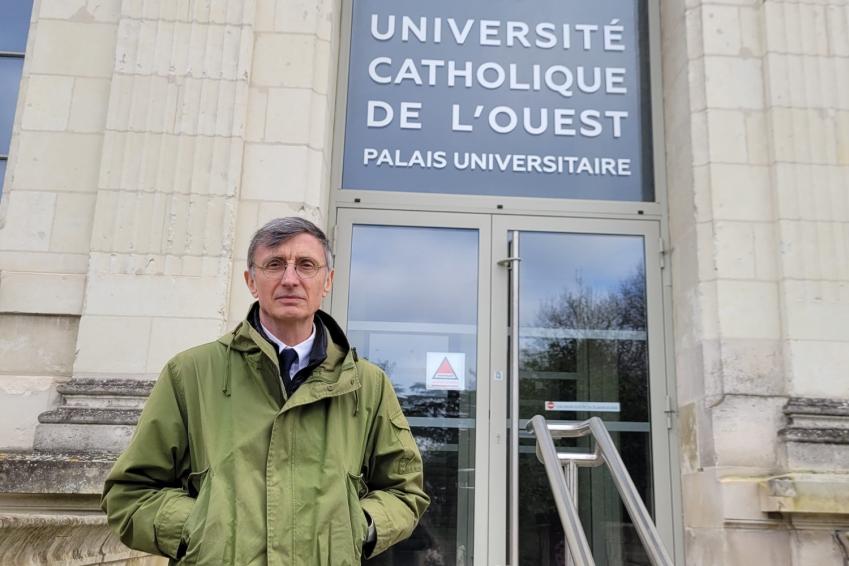
Philippe Chapleau, Bachelor of Arts (1981), head of the World Service at Ouest France
Philippe Chapleau, journalist and head of Europe@-Monde at Ouest-France, returned to the Angers campus of the Université Catholique de l'Ouest to share his career path and vision of journalism with students from the Faculté des Humanités. A UCO graduate, he talked about his career path, his commitment to reliable information and his interest in the field of defense. Many thanks to him for taking the time to share his story with our students!
You're a former UCO student. Can you tell us a bit about your background?
Indeed, I'm a graduate of UCO. My training began in literature and history(Licence de Lettres, 1981). I remember a key moment in my career: meeting Georges Cesbron, a teacher at UCO, who steered me towards a master's degree in literature.
I went on to write a thesis on the discourse of war. It was at this point that life led me to an experience in South Africa.
I currently work for Ouest-France, where I manage the World service.
I specialize in defense issues and cover military news on a daily basis. Every morning, I work on the " Lignes de défense " blog, which I created 14 years ago. I also had the opportunity to return to the Université catholique de l'Ouest this academic year for the ceremony to honor alumni who died for France and our freedom, in the presence of another alumnus, German Defense Minister Boris Pistorius (CIDEF, 1983).
How has South Africa influenced your career?
South Africa, at the time of apartheid, was a place of great conflict. Initially, I wasn't sure of my professional orientation, but this immersion in a country at war enabled me to link my academic research to the reality on the ground. I started working for magazines specializing in conflictual situations in southern Africa. One day, an editor from Ouest France contacted me, offering me the chance to work with the paper from South Africa. It was then that I became seriously interested in journalism.
What has your career path been like at Ouest France?
After my first few years in South Africa, Ouest France offered me a job in Normandy, in Saint-Lô, where I covered events such as the 50th anniversary of D-Day. Afterwards, I took a course in newspaper management in Paris. In 2001, I came back to Rennes and took over the management of the local newsroom. I then moved on to the political department, and in 2009 took over as head of the Europe-World department.
Does Ouest-France allow a journalistic specialization?
Yes, Ouest France is a medium that offers space for specialists. That's not the case with all newspapers. Here, I've been able to deepen my expertise in the military field. We have a team dedicated to foreign policy and international issues, and I've been heading that team for nearly 8 years now.
Journalism has come a long way. How do you see the profession today?
Journalism has changed enormously, particularly with the rise of digital technology. Today's journalists need to be "flyers", able to work in a variety of media: print, radio, web. However, there is a risk: in the race for information, we are sometimes in more of a hurry to comment than to verify. Ethics remain paramount, and discernment is essential, especially in situations where the disclosure of information could harm human lives.
What do you see as the future of journalism in the face of new technologies like AI?
Artificial intelligence has its limits. It can never replace the human ability to gather information in the field. Journalism is first and foremost a matter of contact, fieldwork, investigation and discernment. AI can be a tool, but the quality of the information and its veracity depend on the human being.
Finally, how do you see the relationship between the media and the public evolving today?
The relationship with the media has changed enormously. Today, there's a constant quest for objectivity, but I'm convinced it doesn't exist. What we expect from journalists is reliability. In the world of information, you have to question what you read and what you publish. Ethics and responsibility are more than ever at the heart of the profession.

 8
8







